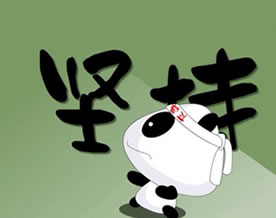新东方版2010考研英语作文真题解析及范文
北京新东方学校 王江涛大作文
北京新东方学校 王江涛 小作文(见第二页)
Part B
52. Directions:
Write an essay of 160-200 words based on the following drawing. In your essay, you should
1) describe the drawing briefly,
2) explain its intended meaning, and then
3) give your comments。
You should write neatly on ANSHWER SHEET 2. (20 points)
(图略)文化“火锅”:既美味又营养
文字说明:佛、解构、人本、功夫、毕昇、儒、礼、后现代、老舍、莎士比亚、爱因斯坦、道、仁、天鹅湖、启蒙、京剧等
真题解析
2010年考研英语(一)大作文再次考察图画作文,这已是考研写作第十二次考查图画作文这种题型,广大考生应该不会陌生。图中的火锅里,五味杂陈着诸多多元文化元素,大致可分为三类:一是古今名人,包括中国古代的印刷术发明者毕昇,现代作家老舍,16世纪英国作家莎士比亚,现代物理学泰斗爱因斯坦;二是哲学概念,涵盖中国古代的儒、佛、道、仁、礼,西方的启蒙、人本、后现代与解构;以及京剧、功夫、天鹅湖等中外表演艺术。文字说明显示:文化“火锅”,既美味又营养。显而易见,本文的主题是多元文化融合这一正面观点。
2002年考研写作题目即“文化——民族与世界”,八年之后,考研写作再次考查文化交流这一话题。如果大家参加过新东方的培训,我们的写作培训教材34页和35页分别提供了2002年教育部公布的当年写作状元与榜眼:20分和18分的高分作文,其中诸多表达均可用于2010年写作。我的强化班和基础班写作讲义也提供了一篇2002年范文,第二、第三两段今年完全可以使用。拙著《2010考研英语高分写作》一书166至170页详细讲解了2002年真题,并详尽分析了三篇经典范文,考生均可使用。只要平时认真准备,将范文背诵得滚瓜烂熟、脱口而出、多多益善,考场上应有喜出望外之感。
本文提纲与2008、2009年提纲完全一致,第一段为图画描述,应将图画描述一至二句,最好能够写出图中的一些术语,多多益善,展示自己的词汇基本功,末句可点出图画文字说明。第二段为意义阐释段,最好首句点出图画的象征寓意:多元文化融合,其次使用因果、举例、正反或联系现实等多种手段进行充分论证。第三段为归纳结论,可以提出自己的观点,并给出结论或建议。只要考生语言精彩(正确+变化)、结构严谨、论证充分,即可取得理想成绩。
参考范文
As is symbolically illustrated in the portrayal, there is a boiling hotpot containing various ingredients of multi-cultures. These pluralistic cultures can be categorized as celebrities home and abroad as Bi Sheng, Lao She, Shakespeare and Einstein, philosophical concepts as Buddhism, Taoism, Confucianism, benevolence, rite, humanism, enlightenment, post-modernism and deconstruction, as well as performing arts as Peking Opera, Kong fu and Swan Lake. We are informed that the culture “hotpot” is both delicious and nutritious.From hxw.red.
The purpose of the cartoonist is to show us that instead of being outdated and of little value in a rapidly modernizing world, cultural blending should be encouraged and maintained. On the one hand, mosaic cultures are part of the universal heritage of humanity and they are powerful means of bringing together diverse peoples and social groups. Consequently, cultural reintegration has become indispensable as a means of promoting further culture development and maintenance. On the other hand, for China, as for any other rapidly developing country, there is a danger that age-old customs and traditions may become lost in the shadows of modernization. If kung-fu, Peking Opera or goose lake ballet ever perished from the earth, it would be a tragedy of immeasurable proportions.
In my view, multi-cultures can be kept alive by the people with the time to do so, and is extremely vital in ensuring a community’s future development and prosperity. As a consequence of successful commercialization efforts, unwavering government support and growing interest overseas, the future of cultural blending looks brighter and more secure than ever before.
参考译文
如图象征性所示,一只沸腾的火锅中拥有诸多多元文化元素。这些多元文化可分为毕昇、老舍、莎士比亚、爱因斯坦等国内外名人,佛、道、儒、仁、礼、启蒙、人本、后现代、解构等哲学概念,以及京剧、功夫、天鹅湖等表演艺术。文字说明显示:“文化‘火锅’,既美味又营养。”
画家的目的是告诉我们文化融合并未过时或失去价值,相反还应鼓励和保持。一方面,多元文化作为全体人类遗产的一部分,是将不同人群和社会群体融合的有力方式。因此,文化融合作为促进文化发展和保护的一种方式,已经不可或缺。另一方面,中国跟世界上其他快速发展的国家一样,年久的习俗和传统面临着消失在现代化阴影里的危险。如果京剧、功夫或天鹅湖从地球上消失,那将是不可估量的悲剧。
在我看来,如果人们能为多元文化花费时间的话,那么它就能得以保护。这对确保社会将来的繁荣和发展都至关重要。由于成功的商业努力、政府坚定不移的支持和不断增长的海外兴趣,多元文化的将来会比过去任何时候更明朗、更安全。
© 2021-现在 好学英文网 软著登记号:2025SR2204462 湘ICP备2022000939号|













